WITHIN the cold cement walls sat the Territory’s most notorious criminals.
Convicted in 2005 of the execution-style murder of British traveller Peter Falconio, Bradley Murdoch served his sentence just a few blocks from where an 11-year-old boy is now held.
The Territory’s maximum security Berrimah Prison was decommissioned in 2014 after being declared as “only fit for a bulldozer”.
The prison failed to meet international standards at the time, but now holds up to 50 children on any given day whose crimes range from petty theft to assault.
Despite calls for the facility’s closure the Territory continues to detain twice as many children as it did in 2020. Some are as young as 10.
LIVING IN DON DALE:
The judge spoke quietly in the Childrens’ courtroom as a tiny Aboriginal boy was telecasted through a video link from Don Dale.
The 11-year-old looked down at his hands; withdrawn, quiet, sad.
His grandmother sat across the courtroom eyes fixed on the boy, her eyes filled with tears as he asked the judge if could come home.
On January 10 the child was remanded to Berrimah Prison, commonly called Don Dale, because the police could not find him an ankle monitor.
He spent eight days in a 3x2m cell. Only spoken to through ‘the hatch’ – a slit in the door – he was left alone for more than 20 hours each day.
About five days later, he was finally allowed to call his Nanna, the woman who helped raise him while his parents battled their own demons with addiction and trauma.
“I’m all right Nanna,” he said.
His nan, who cannot be named for legal reasons, explained that for most of the day he was in his room doing nothing. Her grandson was given no access to education or therapeutic programs.
“He is basically just in his room. They can’t write or draw because the prison thinks they will do graffiti or something worse,” she said.
Nanna drew in a deep breath, her voice quivered.
“The grief and the stress and the strain the whole system puts on families. It’s affecting all of us.”
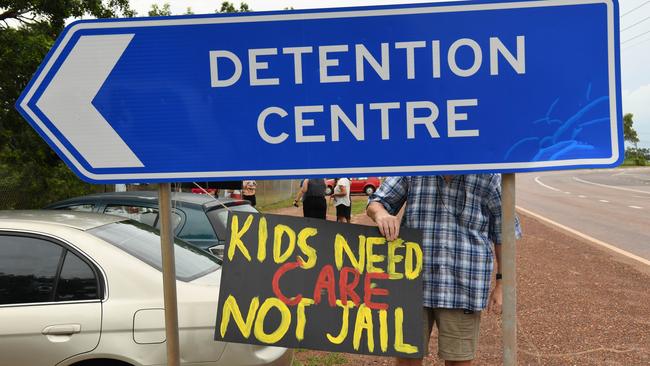
For children under 14, the Territory offers very few diversion programs. Social enterprise Saltbush offers children 14 years and over a program that includes learning a trade, while the Malak Re-Engagement School takes children 12 and up.
Instead Nanna has found herself alone navigating therapies and support. She was encouraging her grandson to write a letter to his mother, who he had been separated from for almost two years.
“I’ve been trying to get him to write down how he is thinking or feeling but he isn’t even allowed a pencil,” she said.
Yet just metres away another 14-year-old sits alone in a cell where a former adult prisoner has inscribed his name on the wall.
His mum, a Territory midwife, was told over a phone call her child’s arm was broken while in Don Dale. “I don’t know if he broke his arm in a fight, or if it was separate to that, but I still don’t know.”
His mother, who cannot be named for legal reasons, said her family had never had to navigate the justice system, but since her son entered the facility on remand in November, she was “shattered” by the experience.
“It is mouldy and dirty. The kids are so scared they shower themselves with their clothes on and wash as best they can,” she said.
Tormented by the system, she said her son was dishevelled and his hair was completely “infested with nits”.
“I didn’t even recognise the kid that came out of there. He was angry. He was violent. He was hitting himself in the head with his hands … and talking about taking his own life.”
TRAUMA NEVER GOES AWAY:
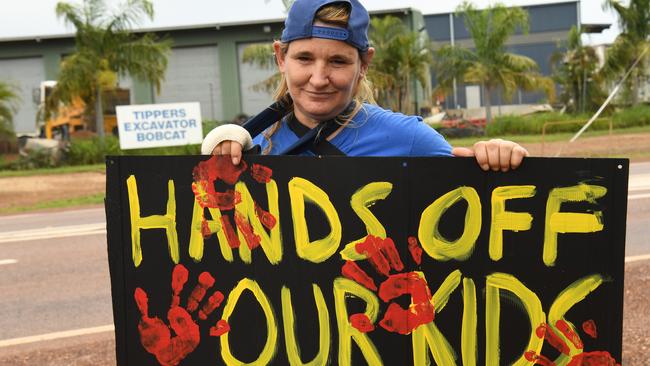
She looks up as her face dissolves into a scowl. Rocket Bretherton can recall the walls of her B Block cell with traumatic detail.
“There’s blood splattered on the walls from God knows how many people,” she said.
“If you’re somewhere with a roof, you can hear the rats running … and if you’re scared of cockroaches? You’ve got cockroaches landing on you.”
The Berrimah Prison she describes is now hosting juveniles. The most recent Office of the Children’s Commissioner’s monitoring report said youth were “living in a cage-like setting with minimal trauma-informed response from Youth Justice Officers”.
Forty-eight children and young people now spend up to 23 hours and 45 minutes per day in cells Rocket would describe as “filthy”.
As she recalls the smell her face twists. She is repulsed. She is angry.
“It’s feral. It’s bloody filthy. I wouldn’t let someone put their dog in there,” she said “It’s lonely, it’s dark, and it’s cold. And it just makes you feel like shit. You’re nothing more than a number.”
Clutching her arms across her body, Rocket’s trauma surfaces, her eyes well. The damage that place did to her is something that will never leave her, she says.
“Ten years old and they’re locked up somewhere that is condemned for a bulldozer,” she said.
“Surely it is a violation of human rights to treat a person like that? Surely it’s a violation of these kids’ rights to be held in there? They would be scared, so scared and traumatised.”
Rocket wrote a podcast called Bird’s Eye View about her and other women’s experiences in Berrimah. She says it has helped her change her life, but the trauma you get from corrections “never goes away”.
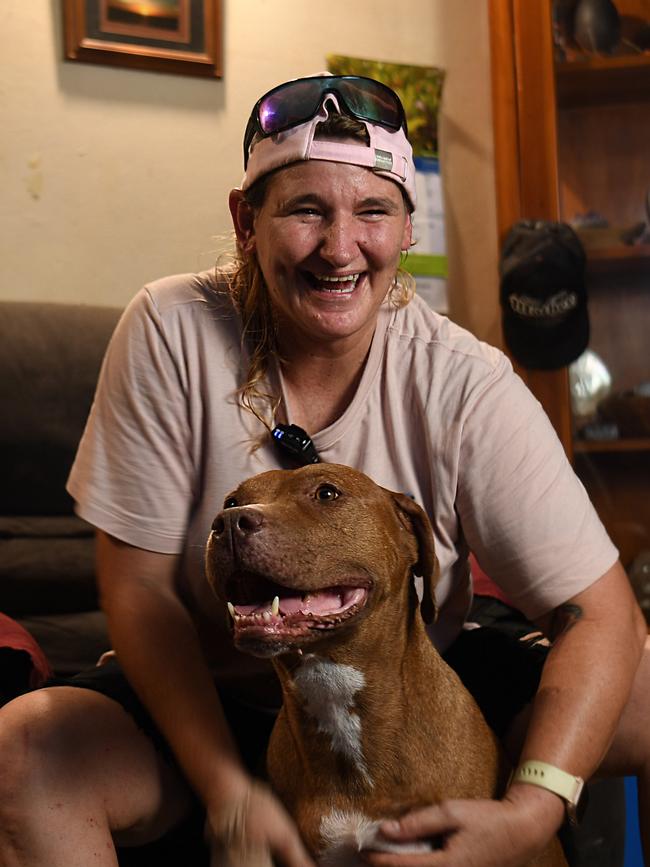
The Territory had a child take their own life while in Don Dale in 2000. Rocket says it is only a matter of time before it happens again.
“That’s what it’s going to take (for action) for one kid to have enough, or for them to riot and burn down Don Dale again – then it’s newsworthy.”
Acting Children’s Commissioner Nicole Hucks couldn’t completely rule out the potential for a child to take their life while in Don Dale.
Ms Hucks says there are mental health mechanisms and 15-minute supervision of kids in the detention facilities, but these are complicated by staff shortages, system gaps and loopholes.
“I’m not going to say ‘no, that’s not ever going to happen’,” she says.
However, the empathy Rocket shares comes from a darkness in her own struggles.
“I would have taken my own life when I was in there,” she says.
“Kids don’t need to have people be tough on them, they’ve had people be tough on them all their lives.
“What they need is money spent on them … get them out bush, get them working, get them studying, get them doing apprenticeships, get them doing anything meaningful so that their lives have purpose.”
THEY NEED HELP:
THE walls of his Smith St apartment are adorned in sketches and paintings.
A small white kitten plays with a sock behind the mattress in the hall. There are didgeridoos leaning against the fridge.
This home is a far cry from the cells Leigh Fowlestone and his partner Genevieve White once occupied.
Despite the bright art and Leigh’s lively demeanour, he has days crippled by post-traumatic stress disorder.
Twelve years ago he watched as his brother was brutally stabbed to death.
“We grew up together, I was his shadow. He was my big brother and I walked underneath him, I followed his footsteps,” Leigh says.
“And then he got murdered in front of me.”
A few years later his other brother took his own life, leaving Leigh alone.
“I’m by myself now, and I’m f--king strong … (but) I’ve hurt myself a lot.”
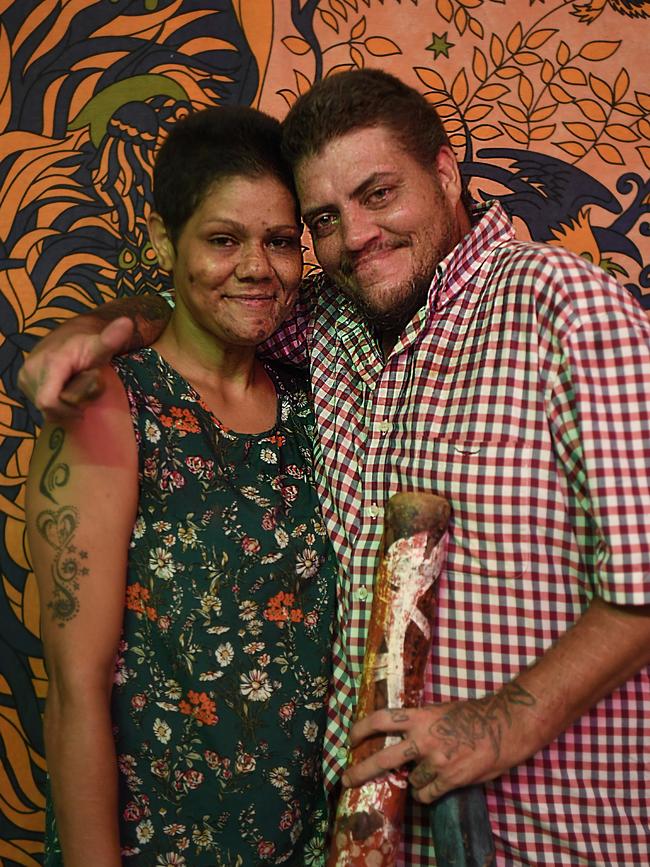
Leigh says it’s this kind of trauma that young boys and girls are carrying when they’re thrown into the Berrimah cells.
“They just get judged, they get pushed straight there,” he says.
“They need help. They don’t need to be locked up – they need help first.”
In the October monitoring report, the lack of therapeutic or culturally informed care offered at Don Dale was a ‘major’ concern to the Office of the Children’s Commissioner.
“The OCC made several recommendations in these reports, including the need for an evidence-based therapeutic model of care to be implemented in both the detention centres,” says Ms Hucks.
“Detention centres also need to be provided with adequate numbers of staff, who are fully prepared with trauma-informed training, so that these centres have the ability to help young people address offending behaviour.”
Leigh says children are losing their culture and ways of understanding.
“(They’re) taking away our babies rights for living.”
Despite his own difficulties, Leigh says youth groups and social services are key to his recovery, but they are desperately missing in the Territory.
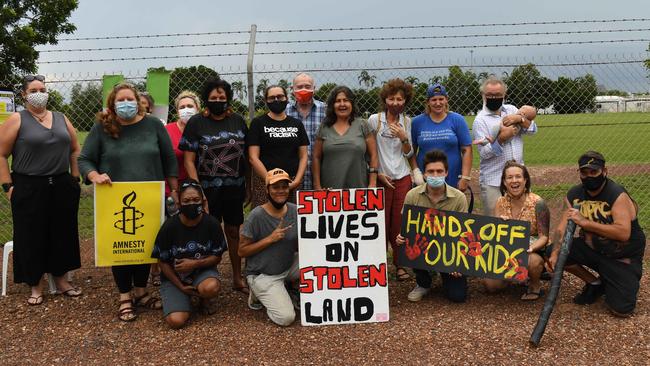
“Youth groups are going to work. Having a say and having a bit of love in their life. No one has that,” he says.
“They need to teach them how to become black fellas, white fellas, whatever … teach them how to become countrymen … so they become better men, they can become stronger and look after their family with respect.”
I CAN’T IGNORE IT NOW:
SHE is the mother who knows her son is not perfect.
“He has made mistakes,” she says, but the 14-year-old – the same boy with the broken arm locked up in the graffitied cell – who walked out of Don Dale is not the same as the one that went in. The boy was released for a matter of days before being sent back.
He was a funny, cheeky and slightly mischievous kid, but his mother now believes after just five weeks, the torment her son experienced has transformed him.
“The kid that left Don Dale is a kid I do not know,” she said.
“He wanted to hurt himself and doesn’t care about anything or anyone or himself.”
The mother of six, who works with vulnerable families, says she is shocked by the damage that could be done to her son.
Her son was placed on remand in Don Dale over Christmas after his bail was denied.
The Territory government’s new bail laws have seen an increase in children detained.
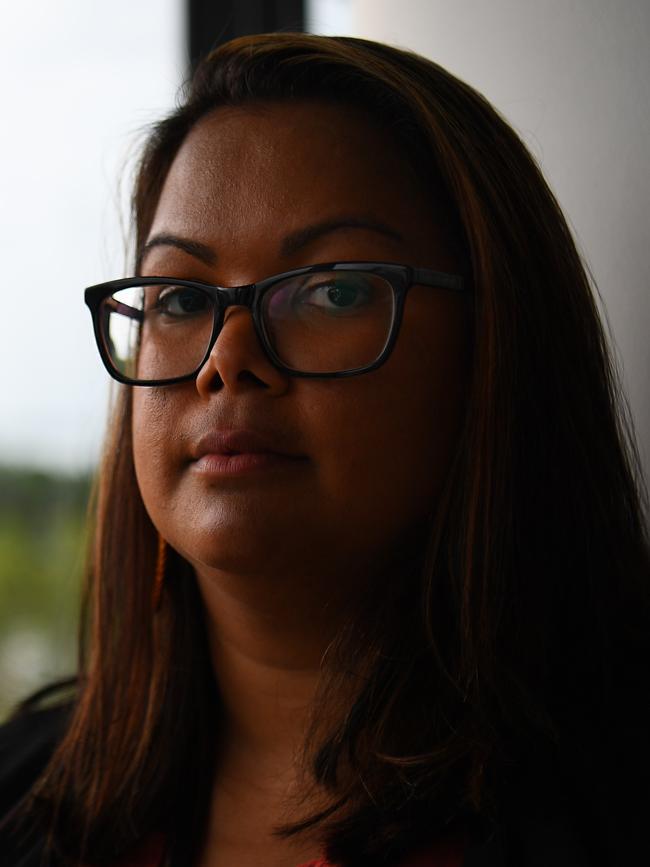
Ms Hucks said the OCC had warned the government the changes would lead to more children and young people being locked up.
“What we are seeing is more children detained and recidivism over about 70 per cent.”
His mother said that was a clear indication the system is failing kids.
“Where are the key performance indicators for this place … we are just locking them up and then setting them up for failure.”
After her son’s arm was broken while he was in Don Dale, she received one call from Danila Dilba but still has no understanding of how the arm was broken.
She said Don Dale has made her son withdrawn and he is clearly tormented, but has Autism and often finds it hard to share his feelings.
“I cannot imagine a more helpless situation … You’re completely at their mercy,” she said. “Could you imagine having your child a fence away from you, but you have no power to protect them?
“It’s a Lord of the Flies situation in there … It’s really actually sickening when you really delve deep into it.”
She is one of many who have joined a movement for the closure of Don Dale.
“It’s completely normalised in Darwin that Don Dale exists and it’s just where naughty kids go. Once upon a time I probably would have shared this attitude,” she said.
“(But) you do not understand the torment that is happening behind those walls. There’s little kids in there literally rotting in a prison cell, surely we can do a little bit better than that?”
His mother said wants to use her voice and experience to speak up. She said she wanted some light to come from the darkness of her son’s time in Don Dale.
“I’m in it now and I can’t ignore it. Something good needs to come out of that, because there’s nothing good in that place at the moment,” she said.

‘Master plan’ behind kids in detention being moved 1500km, minister says
Kids being transferred 1500km while in custody is part of the government’s ‘master plan,’ one minister says, after questions in parliament about kids in the ‘being vanished off the streets’. Find out more.
Tomahawk used in Alice servo robbery, cops allege
A tomahawk has allegedly been brandished during an alleged servo robbery in the Red Centre, cops say, while an unrelated car fire is being treated as ‘suspicious’. Read the latest.